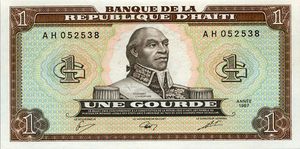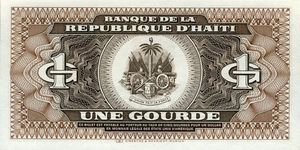Haiti

 Haiti, officially the Republic of Haiti, is a Caribbean country. It occupies the western, smaller portion of the island of Hispaniola, in the Greater Antillean archipelago, which it shares with the Dominican Republic. Ayiti (land of high mountains) was the indigenous Taíno or Amerindian name for the island. The country's highest point is Pic la Selle, at 2,680 metres (8,793 ft). The total area of Haiti is 27,750 square kilometres (10,714 sq mi) and its capital is Port-au-Prince. Haitian Creole and French are the official languages.
Haiti, officially the Republic of Haiti, is a Caribbean country. It occupies the western, smaller portion of the island of Hispaniola, in the Greater Antillean archipelago, which it shares with the Dominican Republic. Ayiti (land of high mountains) was the indigenous Taíno or Amerindian name for the island. The country's highest point is Pic la Selle, at 2,680 metres (8,793 ft). The total area of Haiti is 27,750 square kilometres (10,714 sq mi) and its capital is Port-au-Prince. Haitian Creole and French are the official languages.
Haiti's regional, historical, and ethno-linguistic position is unique for several reasons. It was the first independent nation of Latin America and the Caribbean, the first black-led republic in the world, and the second republic in the Americas when it gained independence in 1804 as part of a successful slave revolution lasting nearly a decade. In 2012, Haiti announced its intention to seek associate membership status in the African Union. Haiti is the most populous of the predominantly Francophone independent nations in the Americas; others include Saint Lucia, and the Commonwealth of Dominica. It is one of only two independent nations in the Americas (along with Canada) to designate French as an official language; the other French-speaking areas are all overseas départements, or collectivités, of France.
Haiti is the most populous full member-state of the Caribbean Community (CARICOM)-bloc. It is the poorest country in the Americas as per the Human Development Index. Political violence has occurred regularly throughout its history, leading to government instability. Most recently, in February 2004, a coup d'état originating in the north of the country forced the resignation and exile of President Jean-Bertrand Aristide. A provisional government took control with security provided by the United Nations Stabilization Mission in Haiti (MINUSTAH). Michel Martelly, the current president, was elected in the Haitian general election, 2011.
The island has had a history of destructive earthquakes. A 7.0 magnitude earthquake struck Haiti on 12 January 2010 and devastated Port-au-Prince. The highest reliable death count was estimated at 220,000. Haitian government estimates were higher. The Presidential palace, Parliament and many other important structures were destroyed, along with countless homes and businesses, leaving hundreds of thousands of people homeless. The country has yet to recover from the 2010 earthquake (and subsequent incidents) due to both the severity of the damage Haiti endured in 2010, as well as a government that was ineffective well before the earthquake. United States aid organizations have donated $2 billion. Combined with other international donations, these funds are intended to contribute to the rebuilding of the country. (© wikipedia)
1 Gourde - P245a











